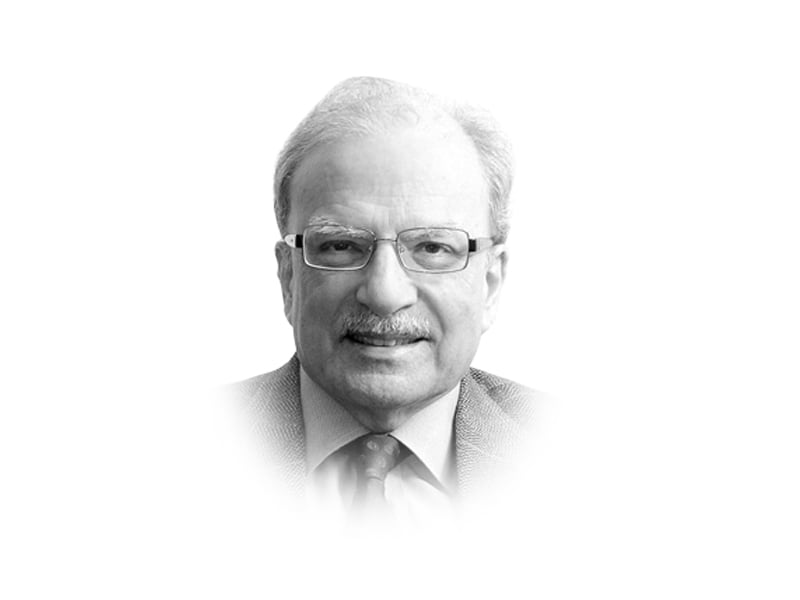
More elections will be held in the world in 2024 than ever before. Five of these will be in the countries with large populations. These are in alphabetical order: Bangladesh, India, Indonesia, Pakistan and the United States. Together these countries have a population of over 2 billion with about half of them eligible to vote. The likely voters have received an important message: they will be voting to save democratic systems in their countries. The last of these countries to go to the polls is the United States. The election for choosing the next American president will be in November and one of the likely candidates is Donald Trump who has already served in the White House as President from 2017 to 2021. He lost to President Joe Biden but did not accept defeat, calling the election rigged by what he calls the “deep state” in favour of Biden. By deep state is meant the government’s bureaucratic structure which worked to promote its interests rather than that of the nation.
One of the important attributes of a well-functioning democratic system is to accept the result of elections. This condition was not met by Trump. He convinced his followers that if he runs again, as seems very likely, the world would be looking at which direction the American democratic system will take. As Paul Krugman, the Nobel Prize winning economist who writes weekly column for The New York Times, wrote on February 14: “It now seems entirely possible that within the next year, the American democracy could be irretrievably altered. And the final blow won’t be the rise of extremism – that rise certainly created the preconditions for disaster for some time now. No what may turn out to be is the handwringing over Biden’s age has overshadowed the real stakes in the 2024 election.”
Bangladesh was the first of the big five to have its citizens go to the polls. Elections to the Jatiya Sangsad, the national assembly, were held on January 7, 2024 before the expiration of its term on January 29, 2024. The election was won by the incumbent Sheikh Hasina who heads the Awami League which had won the country independence in December 1971 under the chairmanship of her father Sheikh Mujibur Rehman. This was her fourth term in office. The lead up the elections was marked by Hasina’s moves against the opposition, most of whose leaders were imprisoned. There was total consensus among those who watch Bangladesh that the prime minister has effectively destroyed democracy in the country and established authoritarian rule. Her party won 223 seats while independent candidates, most of whom were Awami League members, put forward as dummy candidates to give the impression of a completive system.
The second big election was in Pakistan held on February 8 but the full results have yet to be declared by the Election Commission of Pakistan, the ECP. The world was watching the Pakistani experience and several voices expressed deep concern at the way the elections were conducted. Of the big five, three are Muslim-majority countries.
I will quote a few observations about the Pakistani elections from the western world. Britain’s news magazine, The Economist, called the Pakistani election rigged, focusing on the belief that behind the scenes the country’s powerful military seems to have been working hard to produce the result to its liking. The people reacted to the alleged rigging by coming out in the choked streets of the country’s large cities. Lahore, the country’s second largest city, saw a large demonstration, protesting what those in the crowd were convinced that the elections had been rigged. The widely read magazine Time wrote a story on the elections in Pakistan calling the process brazenly rigged. The Guardian, the influential news daily published in London, worried about the way Imran Khan’s supporters who had come in large numbers to vote for him won’t be satisfied unless Khan is treated fairly. Wrote the newspaper: “Attempts to ignore Khan and his supporters may trigger further unrest and instability. That is the opposite of what the country needs. But at a time in history when the integrity of democracy in India and Bangladesh also faces serious questions, Pakistan should take a moment to celebrate the voter revolt of 2024.” The newspaper termed the voting to be a “revolt” because the voting public did not cast their ballots in favour of those the “establishment” wanted to be in power. The word establishment is used in Pakistan to refer to the military. No matter who comes to power as a result of the elections will need to deal with the unresolved matter of the relationship between the military and the civilian authority.
Going back to the write-up in Time magazine: “The question remains how PTI supporters will react to their disenfranchisement, not the least given the grim state of the economy. On May 9, PTI supporters ransacked military premises in response to an earlier, fleeting arrest of Khan. He may remain behind bars, but Thursday’s elections show the sporting icon is far from done as a political force.”
The third big election of 2024 was in Indonesia. It was held on February 14, 2024, less than a week after the Pakistani vote. The elections were for the President, Vice President, and People’s Consultative Assembly which is made up of the House of Representatives, the Senate and members of local legislative bodies. Incumbent president Joko Widodo is ineligible to run for a third term under the country’s constitution. A change in the constitution which lowered the age requirement for the presidency and vice presidency made it possible for the 36-year old Gibran Rakabuming, son of the president, and mayor of Surakarta to run as vice president. The plan is to have the son succeed his father and become Indonesia’s president. It is clear that Widodo is establishing a dynastic system.
The final election of 2024 will be in India, possibly in May of this year when Narendra Modi who has served as prime minister will most likely get another term. That would bring his tenure as prime minister to 2029 – perhaps even beyond – making him the longest serving chief executive in India’s history.
Since democracy is rare in the Muslim world, the experience of these three nations in the electoral process will have significant influence for 1.6 billion people, the size of the population that follows the Islamic faith.
Published in The Express Tribune, February 19th, 2024.
Like Opinion & Editorial on Facebook, follow @ETOpEd on Twitter to receive all updates on all our daily pieces.

1731933289-0/BeFunky-collage-(68)1731933289-0-405x300.webp)


1731931652-0/BeFunky-collage-(67)1731931652-0-165x106.webp)








COMMENTS
Comments are moderated and generally will be posted if they are on-topic and not abusive.
For more information, please see our Comments FAQ